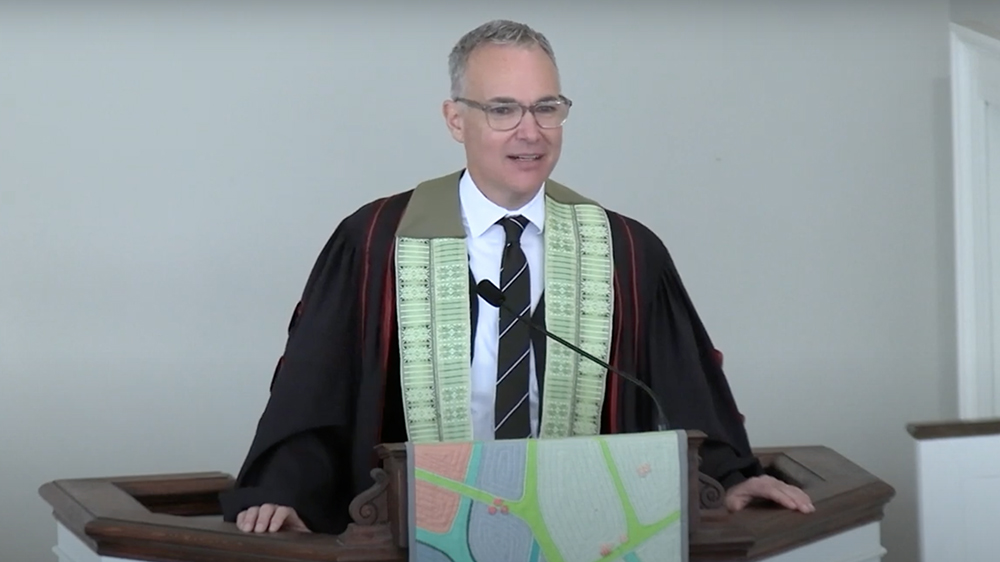ASHINGTON (RNS) — As the ruthlessly contagious omicron coronavirus variant blazed through the Washington, D.C., area over the past week, the Rev. Timothy Tutt hastily scheduled a series of conversations with leaders of Westmoreland United Church of Christ.
Tutt, senior minister at the Bethesda, Maryland, church, consulted with its COVID task force, an assembly of members of the congregation with medical expertise. He also reached out to leaders of the congregation to gauge the feelings of the community and checked in with other local pastors about their plans.
“There was obviously sadness and frustration, a sense of ‘Oh, no, here we go, again,’” he said.
The church had already canceled its late-night Christmas Eve service and planned to convene its one remaining service that day outdoors — partly to accommodate the presence of children not yet eligible to be vaccinated, partly to allow live sheep to roam around during the Christmas pageant. But as coronavirus cases in the city continued to rise, the congregation decided more action was needed: On Wednesday morning (Dec. 22), leaders announced Sunday services would be virtual for at least the next two weeks.
Churches across the country have made similar decisions in the wake of the omicron variant, with pastors and congregations wrestling with whether to continue in-person worship services during a major Christian holiday or to revert back to virtual services that were a hallmark of the early pandemic.
“We want people to be safe, feel safe, and to not feel they have to go somewhere that puts their health at risk,” Tutt told Religion News Service. “We think it’s one way that we can show that we love God and love our neighbors by not exposing people to potential risks — risks they may then expose to others.”

The Rev. Timothy Tutt preaches at Westmoreland United Church of Christ on Nov. 21, 2021, in Bethesda, Maryland. Video screen grab
The push for online services has been especially strong in and around Washington, where COVID-19 case rates are currently the highest in the country, according to The Washington Post. Although the area is heavily vaccinated compared with many states and early evidence suggests COVID-19 cases caused by the omicron variant may be milder, experts still fear the lighting-fast spread of the virus could wreak havoc on unvaccinated or immunocompromised populations.
On Tuesday, the Washington National Cathedral — whose policies often set the tone for churches in the area — announced alterations to a litany of planned services. The cathedral intended to scale back some, shift a few online and cancel at least two altogether.
But by Wednesday evening, officials said they were moving all services online during the holiday season.
“As one of the largest churches in America, we routinely welcome more than 15,000 people to celebrate the Christmas holiday,” read a statement from the Very Rev. Randolph Marshall Hollerith, dean of the cathedral. “However, given the spike in infections, I simply cannot justify gathering massive crowds as the public health situation worsens around us.”

